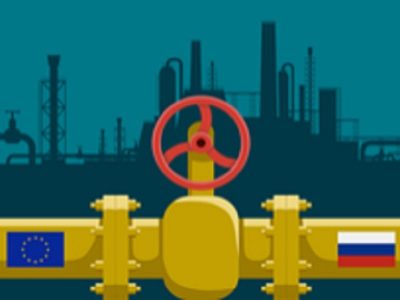The EU’s Energy Crisis Exacerbated by “Radical Green Policies”and Anti-Russian Propaganda

All Global Research articles can be read in 51 languages by activating the “Translate Website” drop down menu on the top banner of our home page (Desktop version).
To receive Global Research’s Daily Newsletter (selected articles), click here.
Visit and follow us on Instagram at @globalresearch_crg.
***
Coupled with the continued global economic uncertainty surrounding COVID-19, the result is that the EU will continue suffering from high prices and unreliable supplies so long as it refuses to pragmatically reach long-term supply agreements with Russia.
President Putin recently expressed exasperation at the counterproductive policies being pushed by the EU amidst its ongoing energy crisis. He agreed with a Duma representative who earlier warned that Europe was at threat of freezing due to its politicization of Russian gas imports. In the Russian leader’s own words,
“Yes, I agree with your assessment. And it’s also stupid for those who are delaying the (Nord Stream II) system, because greater quantities of gas in the European market would surely lower the price of spot transactions. They don’t want to buy from us directly, but for them, the price would fall dramatically. They’re just chopping down the branch they’re sitting on. It’s remarkable.”
It’s very rare for President Putin to express exasperation about anything, let alone other countries’ policies, but that just goes to show how counterproductive he believes them to be. Contrary to what many in the Mainstream Media and Alt-Media Community (AMC) claim, each for their own ideological reasons of course and in pursuit of different narrative ends,
Russia doesn’t want Europe to freeze. It genuinely wants to continue mutually beneficial energy cooperation with the bloc and isn’t interested whatsoever in “punishing” those countries through the suspension of supplies for political reasons. That’s why this exasperates President Putin so much.
The EU’s radical “green” policies and anti-Russian paranoia are directly responsible for exacerbating the ongoing energy crisis.
The first refer to the bloc’s accelerated transition towards so-called “green” energy sources, which occurred at the expense of existing conventional (fossil fuel) ones. The result was that the EU had insufficient fuel supplies to accommodate the economy’s gradual recovery over the past months after the economic consequences of the international community’s uncoordinated efforts to contain COVID-19 dealt a powerful blow to it over nearly the past two years.
They should have gradually implemented moderate policies in hindsight instead of accelerate the implementation of radical ones.
The second factor relates to some countries’ US-instigated fears about Russia’s alleged political intentions when it comes to its role in supplying the EU’s energy.
The Baltic States and Poland have consistently claimed without any factual basis that Russia wants to “punish” all of the EU for whatever reason they claim at the time, be it the bloc’s so-called “democratic” and “human rights” standards or its imposition of sanctions against the Eurasian Great Power. Not once has Russia ever “weaponized” energy, with the only alleged case of this in the early 2000s being due to Ukraine failing to pay for its supplies and subsequently siphoning off resources as they transited through its territory westward.
Russia shut down its export routes per contractual agreement in order to prevent its resources from being stolen and in an attempt to compel the debtors to finally pay their bill. This legal move was maliciously spun as some sort of “collective punishment” against all of Europe, which explains the timing with which Ukraine’s US-backed government at the time carried out this unprecedented provocation.
Even so, it remains etched in some of the regional residents’ minds as Russia’s alleged “weaponization” of energy exports, which their governments now claim is happening once again. These countries would rather pay for more expensive and less reliable US LNG than clinch deals with neighboring Russia.
The state of affairs is such that the EU shows no signs of relenting on its accelerated imposition of radical “green” policies, and the bloc is still somewhat influenced by its Russophobic members’ paranoia about the Kremlin’s strategic intentions.
Coupled with the continued global economic uncertainty surrounding COVID-19, the result is that the EU will continue suffering from high prices and unreliable supplies so long as it refuses to pragmatically reach long-term supply agreements with Russia.
*
Note to readers: Please click the share buttons above or below. Follow us on Instagram, @crg_globalresearch. Forward this article to your email lists. Crosspost on your blog site, internet forums. etc.
This article was originally published on OneWorld.
Featured image is from OneWorld


